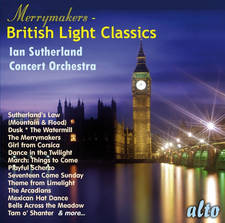From The Back Desk - Samuel Burstin, Philharmonia
12 August 2013, 14:01 | Updated: 15 August 2013, 17:07
We catch up with one of Philharmonia's violists to chat about falling off podiums, staying fresh and why there's no better sound than an orchestra in full flow.
Name: Samuel Burstin
Instrument: Viola
Ensemble: Philharmonia Orchestra
Why did you decide to become a musician?
It was either music or rugby, and my ears are too pretty and skilled for rugby.
What's the one performance from your career that sticks in your mind?
With this orchestra there are many, but the Verdi Requiem with Riccardo Muti in Westminster Cathedral about seven years ago was truly epic.
What's the most embarrassing thing that's happened to you on stage?
I studied conducting at music college, and one day was asked to start a rehearsal of Brahms' Symphony No. 4 as the conductor was running late. I decided to begin with the last movement as it is a simple steady three beats per bar for a while. We were in Blackheath Concert Halls, and I was naturally a little nervous. As I gave a big upbeat for the loud brass chord, I decided to stand rather than stay sitting on the high chair. As my arm came down, the chair tilted forward, the podium slipped on the newly-waxed floor, and I crashed through my music stand, falling face-first to the floor. Nothing was injured except my pride. My conducting career had only one direction to go in from that moment!
If you could work with one musician, living or dead, who would it be and why?
Beethoven. The world would be a much better place if we could categorically stop casting doubt on his tempi markings.
In concert, have you ever thought, "I can't actually play this bit very well, I'm going to mime and hope no-one notices"?
Never. Absolutely not. Ok, maybe Strauss' Don Juan.
Could you give us an example of the downside of the profession, something that the average concert-goer might not know about?
The Philharmonia gives around 160 concerts a year across the planet. We have such high standards and the travelling can make it hard to commit physically and mentally to each concert the same way. We must take responsibility for that ourselves as individuals, but part of what makes a great conductor great is their ability to understand that, and to then inspire us so the concerts, whatever time zone we find ourselves in, are special every time.
Does the touring lifestyle bring out rock star behaviour in the orchestra?
For me? Of course! The bigger the gig, the bigger the party! Unless we have a 5.30am alarm call, a 6am coach followed by a flight, another coach, a rehearsal, a sandwich and a concert the next day, which is what most tours are like.
Have you witnessed any serious diva strops in your time as a musician?
The biggest egos I've encountered have belonged to conductors. If one gets angry and shouts at us, some get scared or upset - I just feel sorry for them. They are nothing without us players, remember. The best ones make us want to play for them, rather than try to force us to - simple psychology.
What's the biggest challenge facing musicians like you these days?
Keeping fresh. It's very important to do other things - I love conducting and have my own charity orchestra. I love playing chamber music. I also follow rugby, football and cricket and have a new wife and baby-to-be, so plenty of other stuff going on.
What's the best thing about being a musician?
Music is literally the best thing in the world. It's storytelling without the need for words. And the greatest music tells stories about what it is to be human, so we can all empathise and all feel it. Mind you, it's very hard to do it very well, which is why it's such a privilege to work with the best players and conductors. There is no better sound than the Philharmonia in full flow.
You can catch Philharmonia performing at this year's London Mela Festival on September 1st.














